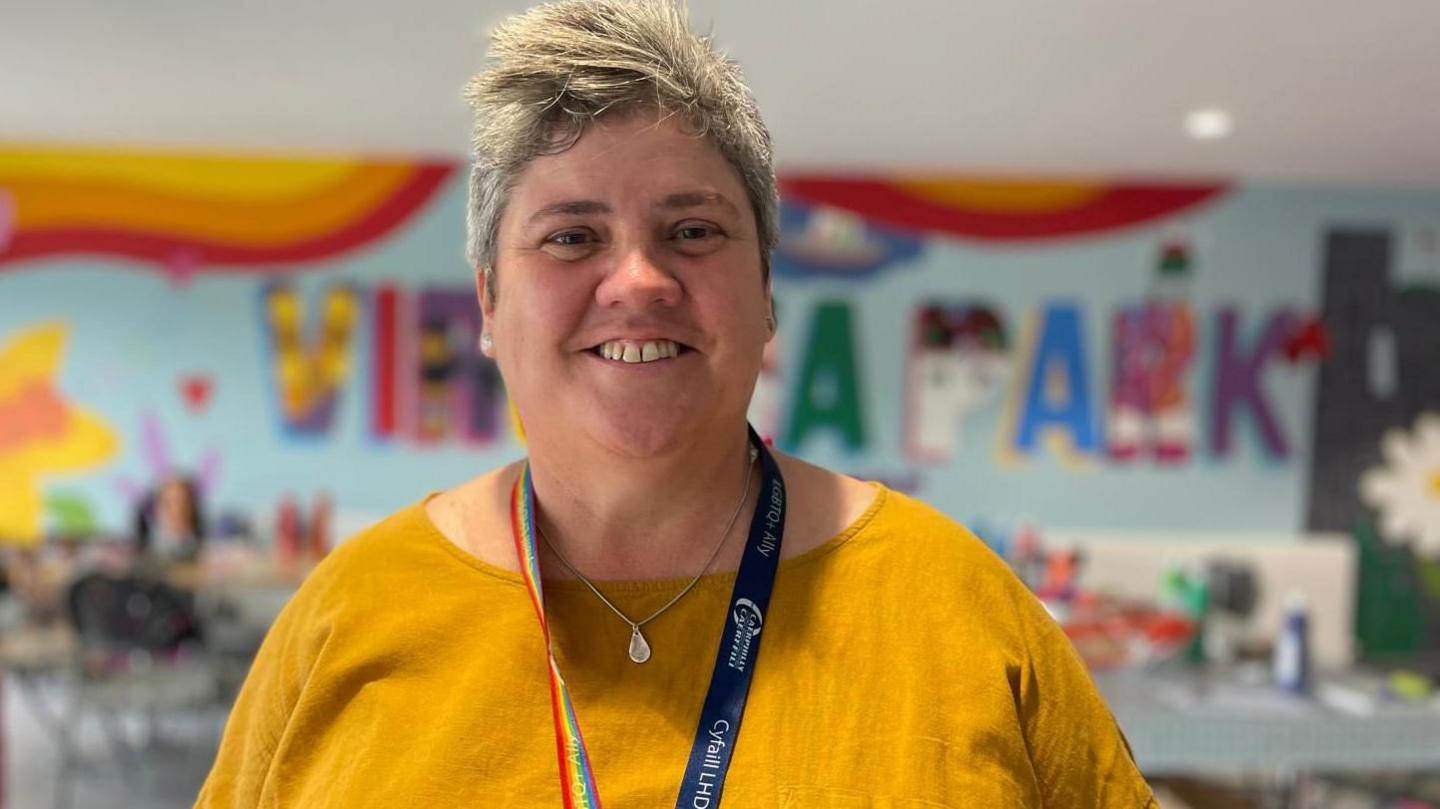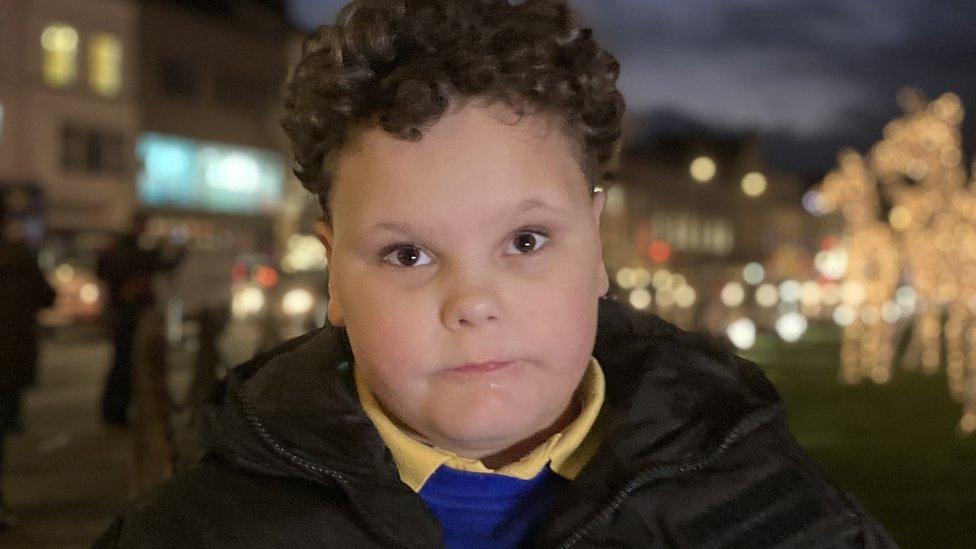Young homeless neurodivergent people feel failed

Steven Lewkowicz says he struggled with his mental health while living with the threat of eviction
- Published
An autistic man who lived with the threat of homelessness for a year, says trying to navigate support systems caused him “an endless amount of anxiety”.
It comes as research showed the needs of young, neurodivergent people in Wales are not being met by services designed for neurotypical minds.
End Youth Homelessness Cymru (EYHC) said inaccessible information and inappropriate accommodation added to young people’s distress.
The Welsh government said it was “committed to tackling all forms of homelessness”.
Neurodiversity service aims to help girls flourish
- Published9 April 2024
Autism diagnosis six years longer for girls - uni
- Published24 May 2022
'Neuroqueer' author purges memories through writing
- Published25 May 2024
"It was like a mountain, I didn’t know where to start,” said Steven Lewkowicz.
He faced eviction after leaving university and being left with no income and no other support.
The 25-year-old, who has ADHD and has struggled with his mental health since his teens, said trying to navigate the systems designed to help felt impossible.
“Phone calls, emails, text messages have always been really big trouble for me.
“I don’t know why but it makes my anxiety go into overdrive. I’m like, ‘what wording do I use? Is it OK for me to send it?’
“It’s just endless amounts of anxiety,” he added.
The former student said he was lucky he was able to access support from the homelessness charity, Llamau.
Someone would remind him of appointments or go with him, which made “the whole process easier”.
Steven said some buildings where support services are accessed “may look big, beautiful and grand”, but to many neurodivergent people “that environment, that’s anxiety, it’s daunting”.
“It’s big, you feel like an ant out of place, whereas if there was an option to have a smaller room [that might help].”
He is now living in different accommodation and wants to use his experiences to help others
“There's some fantastic people who have got me that support, which has then allowed me to luckily not have to be on the streets.
“But that's the issue, it was luck, and it shouldn't be based on luck,” he said.

“When they come into a regular office, that sounds like a train station," says Bill Rowlands, head of End Youth Homelessness Cymru
Steven’s story is familiar to EYHC head Bill Rowlands, who described how the project was inspired by anecdotal conversations about an “over-representation of neurodivergent young people coming into contact with their services”.
It followed research published last year suggesting higher rates of neurodiversity in the UK homeless population compared to the general population.
The project found that, while the reasons for homelessness such as family or foster placement breakdown, or difficulties maintaining a private tenancy, are similar for young people, those “who are neurodivergent are at higher risk”.
He said there still needed to be more research and better data, but young people had told them they could find accessing current services overwhelming.
“When they come into a regular office, that sounds like a train station.
“It’s noisy, it’s hectic, it’s over stimulating… you’re coming to make a homelessness application, probably the highest point of crisis you’ve ever been in your life and you’re coming into a service, into a system that doesn’t work for you, to then disengage,” he added.
He said there were several “day-to-day” things that could be done to make improvements. These include figuring out how best to communicate with young people, whether that was in writing or by phone, making sensory spaces that are peaceful, and ensuring all staff have training.

“We have a lot of young people, maybe with ADHD, that miss appointments," says youth homelessness coordinator Nichola Davies
In Caerphilly, that is something Nichola Davies has been putting into practice.
“It's things like doing videos of our venues, so that young people know what they are coming into," she said.
“That can be really difficult for a neurodivergent young person, but it can be equally important for somebody that's anxious, so other people can benefit from it."
The youth homelessness coordinator, who took part in the research, said that while more training for staff was needed, it could be simple things without big cost implications that can make a difference.
“We have a lot of young people, maybe with ADHD, that miss appointments... we’ve spent four months getting them and they actually miss them, we have to be smarter and support those young people and do things like build-in reminders,” she explained.
The Welsh government said it was investing almost £220m in homelessness prevention and support services, as well as £330m in social housing this year alone.
“This includes more than £7m specifically targeted at early identification of youth homelessness and assistance to help young people develop the life skills to live independently,” a spokesperson added.
Related topics
- Published11 December 2023

- Published10 December 2023

- Published24 May 2023
